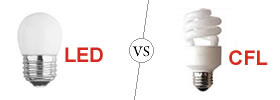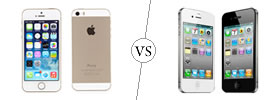Difference between Much and Many
Key difference: ‘Much’ is mainly used with uncountable nouns. Uncountable nouns are also nearly always singular, e.g. salt, cake, research, etc. Furthermore, in instances where countable and uncountable are not applicable, ‘much’ is used in only questions and in negative sentences, not positive or affirmative. ‘Many’ is mainly used with countable nouns, such as person, apple, spoon, day, etc. An easy way to tell apart countable nouns is that these nouns usually have plurals, such as people, apples, spoons, days, etc. Furthermore, ‘many’ is also a bit more flexible than ‘much.’ It can be used in all types of sentences: positive or negative, as well as questions.
 ‘Much’ and ‘many’ are two terms that are used to denote quantity. However, the two terms differ in the manner that they can be used. The main difference between the two is that ‘many’ is mainly used with countable nouns, whereas ‘much is used with uncountable nouns.
‘Much’ and ‘many’ are two terms that are used to denote quantity. However, the two terms differ in the manner that they can be used. The main difference between the two is that ‘many’ is mainly used with countable nouns, whereas ‘much is used with uncountable nouns.
Countable nouns and uncountable nouns just specify weather or not the thing that the sentence is referring to can be counted or not. For example: “How much salt is in the dish?” as opposed to “How many spoons to you need?” We cannot count the salt; hence the term ‘much’ is used, while we can most certainly count the number of spoons; hence ‘many’ is used.
Let’s look at the actual definition of the words. Dictionary.com defines ‘much’ as:
- Great in quantity, measure, or degree: too much cake.
- A great quantity, measure, or degree: Much of his research was unreliable.
- A great, important, or notable thing or matter: The house is not much to look at.
- To a great extent or degree; greatly; far: to talk too much; much heavier.
- Nearly, approximately, or about: This is much like the others.
‘Much’ is mainly used with uncountable nouns. Uncountable nouns are also nearly always singular, e.g. salt, cake, research, etc. Furthermore, in instances where countable and uncountable are not applicable, ‘much’ is used in only questions and in negative sentences, not positive or affirmative. For example: “I have to get lots of food for tomorrow’s party.” However, saying “I have to go get much food for tomorrow’s party” is not grammatically correct. Still, ‘much’ is fine in questions and negative sentences. “How much food do you have for tomorrow’s party?” “Not much.”
However, if ‘much’ is preceded by adverbs, such as ‘so’, ‘too’, or ‘as,’ it can be used in affirmative/positive sentences. For example: “I have to go get so much food for tomorrow’s party” or “I have so much shopping to do today.”
Examples:
- How much milk do you want in your tea?
- How much salt is there in this recipe?
- How much money will it cost me?
- This is what I get for drinking too much coffee.
- How much sleep do you get every night?
- I have so much work to do!
- That’s too much rice for me to consume.
- Train as much as possible, so you can be the best you can be.
- How much do you love me?
- How much milk do you want in your tea?
- How much salt is there in this recipe?
- She is a very funny girl. She is just too much.
 ‘Many’ is also an adjective like ‘much’. It is also used to denote quantity, but it is used very differently than ‘much.’ Dictionary.com defines ‘many’ as:
‘Many’ is also an adjective like ‘much’. It is also used to denote quantity, but it is used very differently than ‘much.’ Dictionary.com defines ‘many’ as:
- Constituting or forming a large number; numerous: many people.
- Noting each one of a large number (usually followed by a or an): For many a day it rained.
- A large or considerable number of persons or things: A good many of the beggars were blind.
- The many, the greater part of humankind.
- Many persons or things: Many of the beggars were blind. Many were unable to attend.
‘Many’ is mainly used with countable nouns, such as person, apple, spoon, day, etc. An easy way to tell apart countable nouns is that these nouns usually have plurals, such as people, apples, spoons, days, etc. Furthermore, ‘many’ is also a bit more flexible than ‘much.’ It can be used in all types of sentences: positive or negative, as well as questions.
Examples:
- How many apples do you want?
- How many books have you read?
- How many brothers and sisters have you got?
- There are many empty chairs in the event.
- How many fruits are there on the table?
- Many children are impoverished in that region of the world.
- There are many challenges that lie ahead.
- There are many things that we can do with this.
- Many animals are migrating south in this time of year.
- How many people are in rehab?
- How many bottles of milk have you bought?
- How many pinches of salt are needed in this recipe?
Image Courtesy: ilovetypography.com, annyas.com









Add new comment